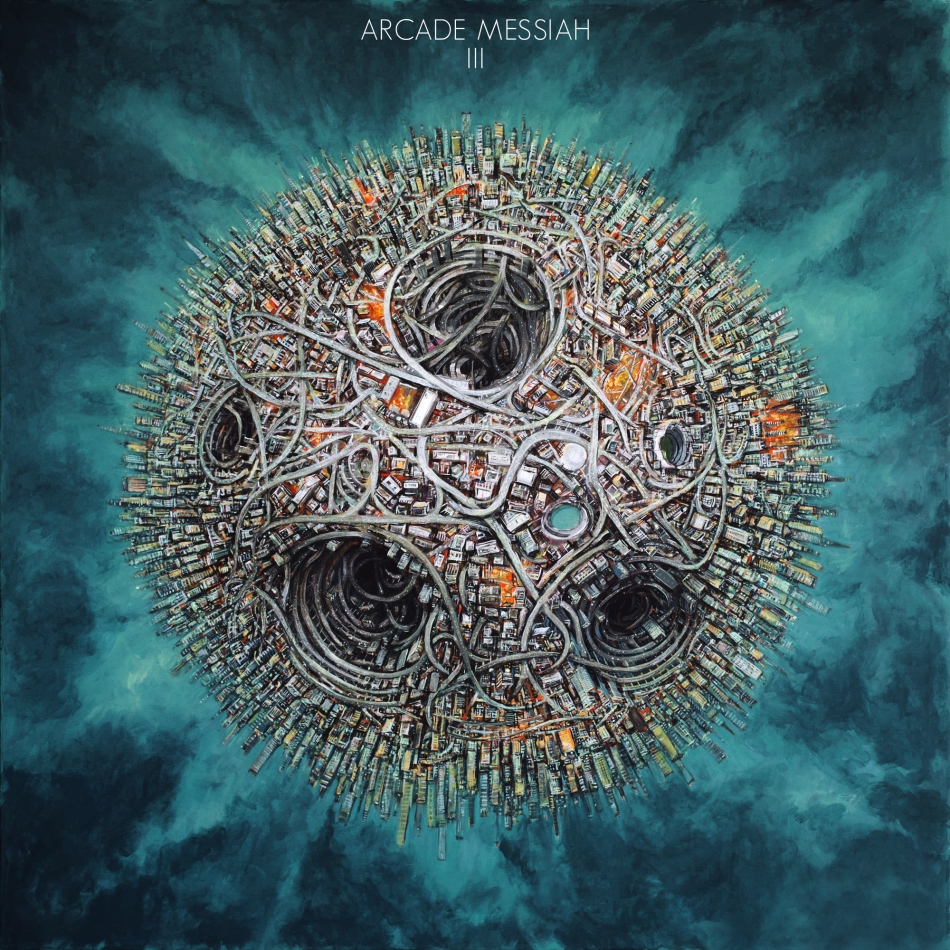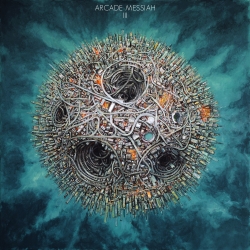Every year, a new Arcade Messiah album arrives like an early holiday present for fans of instrumental “sludge, post-rock, progressive metal, doom, and stoner” music. The DIY project of English visionary John Bassett (whose other main project, KingBathMat, is a remarkable outfit, too), Arcade Messiah’s earlier two studio works—2014’s Arcade Messiah and 2015’s II—revealed just as multitalented and inventive Bassett is across multiple instruments (he does everything for them aside from their artwork, after all). Unsurprisingly, III continues the trend by offering six more highly imaginative and intricate compositions that fit perfectly alongside their predecessors. If you dug what he’s done previously—as well as this style in general—you’ll find the record to be quite satisfying indeed.
As its title suggests, “Revolver” is a furious way to kick off III: sharp guitar chords and feisty percussion pave the way for overlapping clean guitar lines, all of which are eventually interrupted with atypical gruff vocals that add an even tougher grunge vibe to the affair. From there, Bassett modulates his catchy riffs and syncopation until a vibrant and virtuosic solo takes over roughly halfway through. Fortunately, a section of dreamy tranquility comes in near the end, demonstrating how varied his arrangements can be and allowing listeners some breathing room before the initial frenzy commands once again. All in all, it’s a very arresting opener.
“Citadel” maintains a similar vibe at the beginning and end—albeit with trickier drumming, as well as emotional backing patterns that evoke Agalloch—but eventually enters a somber passage dominated by a dissonant guitar croons, calming arpeggios, and warm bass melodies. It’s an interesting deviation for sure. Next, “Deliverance” starts out with mournful strings and complementary echoed notes that juxtapose to create quite a glum atmosphere. Combined with the additional syncopation (which is forceful but reserved and sparse at times), it’s easily the most stylish, touching, and luscious section III has presented thus far. It evolves tastefully, too, with heavier tones piling in after the aforementioned elements have set up a significant foundation. Even better, Bassett channels the hypnotic drum/guitar interplay of, say, Porcupine Tree’s The Incident during the final minutes. It’s definitely a strong showcase for his expansive vision.
The second half of III commences relatively sparsely, as “Life Clock” contrasts multiple guitar parts and percussion yet also leaves discernible space between it all (well, until the concluding madness, that is); in a way, it feels like the aural aftermath of a treacherous battle, and it’s probably the most accessible and straightforward track of the sequence. Subsequently, “Black Tree” is pure heartrending chaos; it utilizes subtle computerized vocals and piercing guitar counterpoints—among other things—to conjure the violent losses that post-rock giants like Russian Circles and Godspeed You! Black Emperor do so well.
Lastly, “Sanctuary” proves to be a fitting closer, as its wonderfully moody and tense, with some of the most alluring and impactful instrumental storytelling on the LP, compacting all of the prior sentiments and styles into a final statement that unfolds like the closing credits of a devastating film. It does a sublime job of sparking both closure for what’s passed and anticipation for what’s to come on IV (assuming that it’ll follow tradition and cap off November 2017). Whether it equals or surpasses its predecessors is up to the listener, of course, but one thing's for sure: III further cements Arcade Messiah as one of the genre's most interesting modern instrumental outfits.


